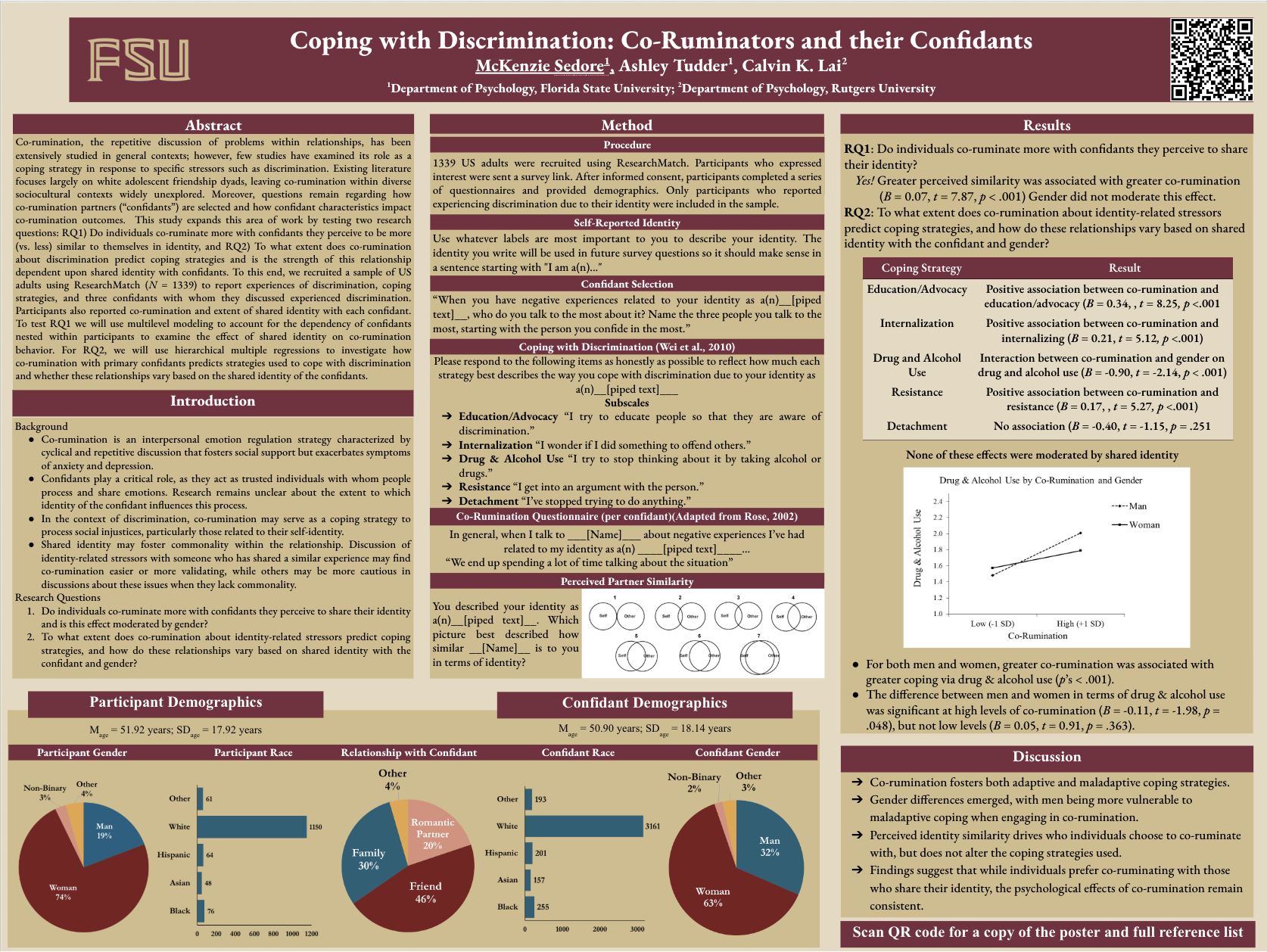Research Symposium
25th annual Undergraduate Research Symposium, April 1, 2025
McKenzie Sedore Poster Session 4: 3:00 pm - 4:00 pm / Poster #257
BIO
McKenzie Sedore is a graduating senior in Psychology at Florida State University. She is earning her Bachelor of Science in Psychology with Honors and a minor in Biological Sciences. She currently serves as the research assistant at The Family Institute in the Department of Human Development and Family Science, working under Dr. Ashley Tudder. Her independent honors thesis examines how individuals cope with discrimination through co-rumination and its effects on psychosocial and health outcomes. In addition to her honors research, McKenzie serves as the lab coordinator at the Contextual and Automatic Influences on Relationships (CAIR) Lab, where she oversees research coordination, assists with AI-driven measure development, and trains students. After graduation, she aims to obtain a post-baccalaureate research position before pursuing a PhD in Social Psychology. Currently, her research interests focus on intimate relationships, particularly with an interest in studying age-discrepant couples, relational distress, and co-regulation within high-stress dyads. She seeks to understand how individuals navigate conflict, power dynamics, and social stigma within intimate relationships, intending to inform interventions to promote relational well-being.
Coping with Discrimination: Co-Ruminators and their Confidants
Authors: McKenzie Sedore, Ashley Tudder, PhDStudent Major: Psychology
Mentor: Ashley Tudder, PhD
Mentor's Department: Department of Human Development and Family Science Mentor's College: Anne Spencer Daves College of Education, Health, and Human Sciences Co-Presenters:
Abstract
Co-rumination, the repetitive discussion of problems within relationships, has been extensively studied in general contexts; however, few studies have examined its role as a coping strategy in response to specific stressors such as discrimination. Existing literature focuses largely on white adolescent friendship dyads, leaving co-rumination within diverse sociocultural contexts widely unexplored. Moreover, questions remain regarding how co-rumination partners (“confidants”) are selected and how confidant characteristics impact co-rumination outcomes. This study expands this area of work by testing two research questions: RQ1) Do individuals co-ruminate more with confidants they perceive to be more (vs. less) similar to themselves in identity, and RQ2) To what extent does co-rumination about discrimination predict coping strategies and is the strength of this relationship dependent upon shared identity with confidants. To this end, we recruited a sample of US adults using ResearchMatch (N = 1339) to report experiences of discrimination, coping strategies, and three confidants with whom they discussed experienced discrimination. Participants also reported co-rumination and extent of shared identity with each confidant. To test RQ1 we will use multilevel modeling to account for the dependency of confidants nested within participants to examine the effect of shared identity on co-rumination behavior. For RQ2, we will use hierarchical multiple regressions to investigate how co-rumination with primary confidants predicts strategies used to cope with discrimination and whether these relationships vary based on the shared identity of the confidants.
Keywords: co-rumination, discrimination, emotional coping, dyadic, relationships


